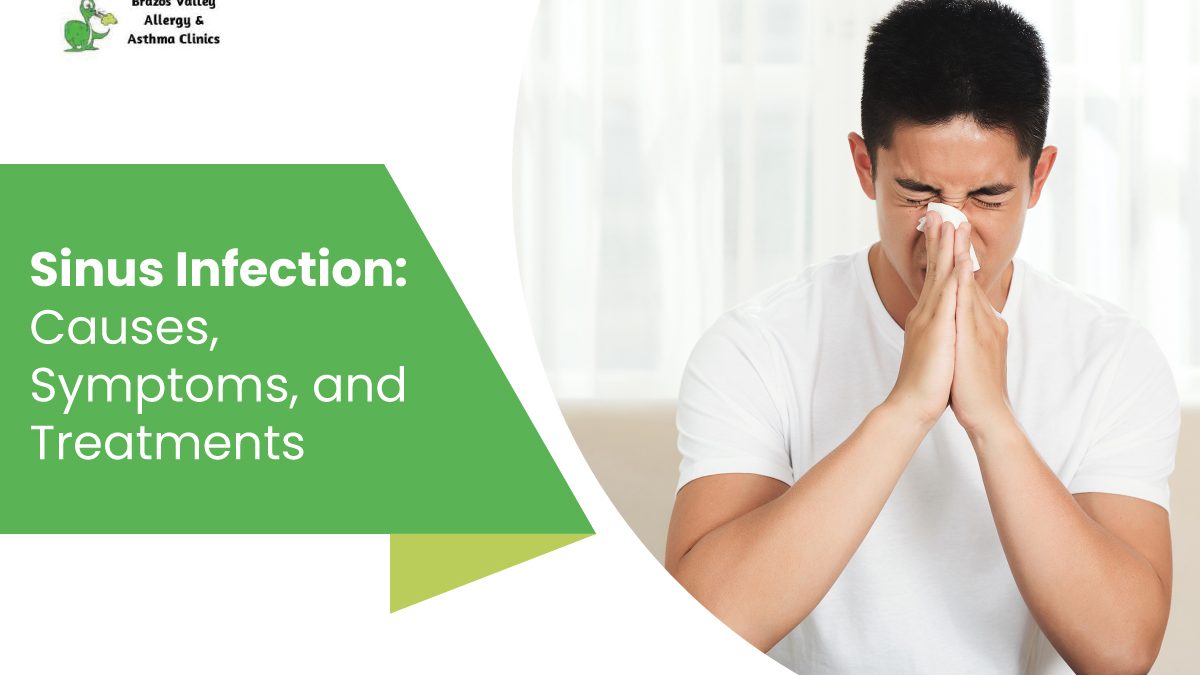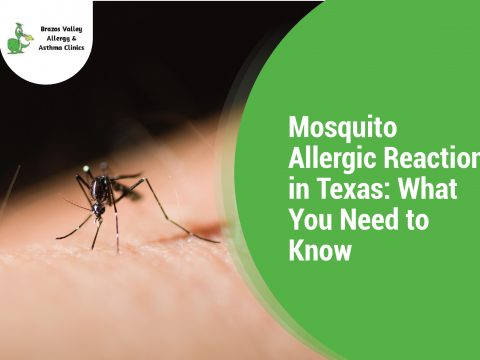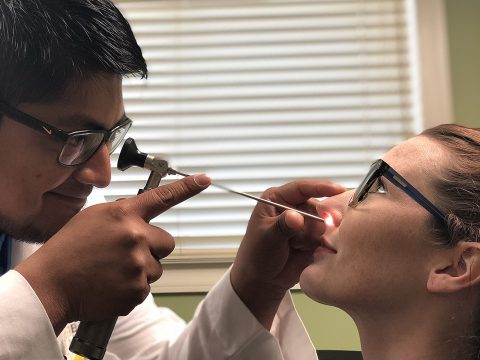- 979-485-9287
- office@bvallergy.com
-
 979-251-7804
979-251-7804
Sinus Infection: Causes, Symptoms, and Treatments

The Complete Guide to Understanding Allergies
February 17, 2023
Do I Need Antibiotics for My Allergies?
March 29, 2023Sinus infection or sinusitis is one of the leading health problems in the United States today. Over 31 million individuals have sinusitis regardless of age, gender, and ethnicity. Moreover, an estimated cost of 1 billion dollars goes to pharmacies for over-the-counter anti-allergy medications (for sinuses allergies).
Sinusitis is a common condition that is almost inescapable. In addition, individuals with pre-existing respiratory conditions, like asthma, are more at risk. So, what to do when you experience signs of a sinus infection?
That’s what you are about to discover in this blog post. You will find the answers you seek about sinusitis facts in our discussion. So, without further ado, let’s begin our journey toward sinus infection: causes, symptoms, and treatments.
Understanding Sinus Infection
What is a sinus infection or sinusitis? A sinus infection occurs when bacteria infect your sinuses, which often leads to inflammation. In addition, viruses and fungi or molds cause sinusitis too. Individuals with a weakened immune system are more at risk of developing sinus infections.
Sinusitis is often mistaken for a bad cold due to the similarities of its symptoms. In both cases, you may experience headaches, runny nose, facial pain, or nasal blockage. However, unlike common colds, antibiotics are needed to treat and manage sinus infections.
How long does a sinus infection last? The typical duration of sinusitis could last up to four weeks. Moreover, a sinus infection for more than twelve weeks is considered chronic.
What Causes a Sinus Infection?
How do you get a sinus infection? Bacteria and viruses are the typical culprits that cause sinus infections. When you have a bacterial sinus infection, fluids build up inside the air-filled cavities in your face, allowing the growth of germs.
Risk Factors
Below is a compilation of the risk factors for getting a sinus infection.
- Seasonal allergies
- A previous cold
- A weak immune system
- Taking drugs that weaken the immune system
- Cigarette smoking
- Exposure to secondhand smoke
- Structural problems within the sinuses (nasal polyps)
Symptoms
The typical symptoms of sinus infection are similar to the common cold. We’ve listed the symptoms below.
- Tenderness in the face, particularly under the eyes or at the bridge of the nose
- Pain in the teeth
- Coughing
- Frontal headaches
- Bad breath
- Fever
- Fatigue
- Discolored nasal discharge (greenish in color)
- Postnasal drip
- Nasal blockage or congestion
Can a sinus infection cause a fever? Yes. However, the severity of the symptoms on the above list differs from one case to another. Some individuals may experience mild symptoms that disappear without medication. On the other hand, others may have severe symptoms that could affect their quality of life. The key is to learn when to visit a doctor.
When to Seek Medical Intervention
One of your queues to visit your doctor is a worsening symptom for prolonged periods. Consider the list below.
- Symptoms for more than ten days without improving
- Severe facial pain or headaches
- Nasal infection with fever for more than three to four days
- Ineffective medications
Consult your provider whenever the symptoms begin to affect your quality of life.
Sinus Infection Treatment
The ideal treatment for sinus infections is medication. The goal is to eliminate the bacteria or virus causing the disease. Here are the different medications and treatments for sinus infection:
Antibiotics
Doctors typically recommend antibiotics in treating and managing sinusitis. These drugs are highly efficient in eliminating many bacteria or viruses. Moreover, the treatment duration takes about 3 to 28 days, depending on the brand of antibiotic used. However, severe cases take longer to treat, depending on the patient’s reaction to the medication.
Antihistamines
Combining anti-allergy drugs and antibiotics is highly efficient in treating and managing sinus infections. Antibiotics kill bacteria or viruses, then anti-allergy medications, like antihistamines, treat the symptoms. Antihistamines block inflammation and reduce the risks of nasal blockages and sinuses.
Nasal Decongestant Sprays
A sinus infection causes inflammation in your nasal passages. Nasal decongestant sprays shrink your nasal passages, allowing better flow of excessive mucus. Moreover, one of the advantages of using nasal decongestant sprays is their fast-acting capability to provide relief.
Nasal Saline Washes
Nasal saline washes help remove the excess mucus from your nasal passages naturally. Moreover, they add moisture that helps relieve sinus infection symptoms. Another benefit of this method is the removal of allergens like pollen, which usually worsens the symptoms of sinusitis.
Surgery
Doctors recommend surgery when the standard treatment is ineffective. Moreover, this method is ideal for structural problems within sinuses. The procedure requires general anesthesia. The goal is to remove nasal polyps or open closed passages for better flow.
Prevention Tips
Effective treatment and management of sinus infections do not stop at the clinic. You can try the tips we compiled to help prevent them too.
Here’s what you can do:
- Keep your hands clean at all times.
Your hands can carry 3,200 germs. These microscopic organisms can cause sinus infections and other adverse health conditions. Always wash your hands to help reduce the risks of sinusitis and other infectious diseases.
- Get vaccinated.
Vaccines boost your immune system and protect you from infectious diseases from viruses or bacteria. Immunizations are safe and effective. Flu vaccines and pneumococcal vaccines are ideal for sinusitis prevention.
- Quit cigarette smoking or secondhand smoke exposure.
Smoke from cigarettes or pollution can worsen the symptoms of sinus infection. Quit if you are a smoker to reduce the risks of sinusitis.
- Use an air-dehumidifier.
Keeping the air moist and clean inside your house reduces the risks of triggering an allergy attack and sinus infection. Moreover, it helps you breathe better too.
- Avoid contact with people who have colds.
It’s easy to catch a common cold. All it takes is a single sneeze. Try to keep your distance or wear a facemask outdoors.
Understanding sinus infection plays a crucial role in treating the disease. We hope that we were able to enlighten you with this blog post. Always remember that a bit of research goes a long way. However, it is still best to consult your doctor for better options.
Sinus Infections and Allergies are Treatable and Manageable
You are on the right page if you’re looking for the best allergists in Brazos Valley. We offer accurate allergy testing and diagnosis to provide safe and efficient treatment for your sinus infection and allergies.
Our board-certified allergist Dr. Paul Jantzi uses proven treatment methods with years of experience.
You can reach him at Brazos Valley Allergy & Asthma Clinics for professional allergy, asthma, and immunology services.




